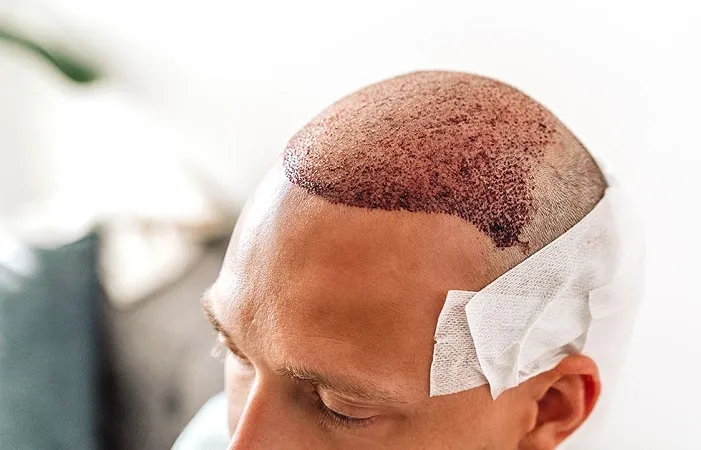Hair transplantation has revolutionized the way people address hair loss. This medical procedure has helped countless individuals regain not only their hair but also their confidence. However, it is important to understand that not everyone is an ideal candidate for hair transplantation. Specific health conditions, unrealistic expectations, and certain lifestyle factors can make some individuals unsuitable for this procedure.
Choosing to undergo hair transplantation requires careful evaluation. A thorough assessment by a qualified surgeon determines candidacy, ensuring the best possible results and minimizing complications. While Hair Transplantation Recovery Time can vary, patient selection is the most crucial step to achieving a successful outcome.
In this article, we will explore five types of people who are not suitable for hair transplantation. Understanding these categories can help you make an informed decision and prepare adequately if you are considering the procedure. Additionally, we will discuss how factors like Hair Transplantation Recovery Time play a role in the decision-making process.
1. People with Severe or Uncontrolled Medical Conditions
Individuals with serious health issues, such as uncontrolled diabetes, heart disease, or autoimmune disorders, are often advised against hair transplantation. These conditions can impair the body’s ability to heal and fight infections, making the recovery process risky and complicated.
Hair transplantation is a surgical procedure that requires the body to heal properly. Any underlying condition that compromises the immune system or blood circulation can extend the Hair Transplantation Recovery Time and increase the risk of complications, including infection, poor graft survival, and scarring.
Patients with manageable chronic conditions must undergo a comprehensive evaluation before proceeding. Surgeons may request clearance from a primary care physician or a specialist to ensure that surgery is safe.
2. Individuals with Insufficient Donor Hair
Hair transplantation relies on harvesting healthy hair follicles from a donor site, typically the back or sides of the scalp. Individuals who suffer from extensive baldness or have poor-quality donor hair may not be good candidates for the procedure.
If there are not enough viable hair follicles to transplant, the final aesthetic results will likely be unsatisfactory. Furthermore, attempting a transplant in such cases could waste the limited donor hair available without achieving meaningful coverage.
In some cases, alternative treatments like scalp micropigmentation, wigs, or future advancements in hair cloning might offer better solutions. Considering Hair Transplantation Recovery Time and potential disappointments, it is vital to assess the availability and quality of donor hair before deciding on surgery.
3. Young Individuals with Early Hair Loss
Hair loss that begins at a young age, particularly in individuals under 25, is often unpredictable. In these cases, it can be difficult to determine the future pattern and severity of hair loss. Performing a hair transplant too early can lead to uneven hair distribution as native hair continues to fall out over time.
Moreover, young patients might require multiple procedures as hair loss progresses, increasing cumulative costs, surgical risks, and extending Hair Transplantation Recovery Time.
Doctors usually recommend waiting until hair loss stabilizes before considering transplantation. Medical therapies like minoxidil or finasteride might be suggested to manage hair loss progression until the patient becomes a suitable candidate for surgery.
4. Individuals with Unrealistic Expectations
Successful hair transplantation can dramatically improve appearance, but it does not create a thick, full head of hair like that of a teenager. The number of transplanted follicles is limited by donor availability, and the results are natural but not magical.
People who expect perfect density, immediate results, or a completely youthful hairline are likely to be disappointed. Setting realistic goals is essential to achieving satisfaction with the outcome. Proper education about what the procedure can and cannot accomplish helps align expectations with reality.
Additionally, understanding the role of Hair Transplantation Recovery Time is critical. New hair growth typically begins several months after surgery, and full results may take up to a year to become visible.
5. Patients with Scalp Diseases or Infections
Conditions such as lichen planopilaris, folliculitis decalvans, or active infections can severely compromise the success of a hair transplant. These diseases damage the scalp and hair follicles, creating a hostile environment for transplanted grafts to survive and grow.
Performing a transplant on an unhealthy scalp can lead to poor graft survival, excessive scarring, and even worsening of the underlying condition. It is critical that any active infection or scalp disease be fully treated and under control before considering hair transplantation.
For these patients, managing the primary scalp condition takes precedence. Only after achieving disease remission can a surgeon re-evaluate candidacy for surgery, keeping in mind the potential for prolonged Hair Transplantation Recovery Time.
Conclusion
Hair transplantation is a remarkable procedure that has transformed the lives of many people experiencing hair loss. However, it is not suitable for everyone. Individuals with severe medical conditions, insufficient donor hair, early-onset hair loss, unrealistic expectations, or active scalp diseases should carefully reconsider or postpone the procedure.
Consulting with a skilled and experienced surgeon is vital to determine eligibility and to explore alternative treatments when necessary. Being a good candidate ensures not only better surgical outcomes but also a smoother, safer Hair Transplantation Recovery Time.
Understanding your personal suitability and setting realistic expectations will pave the way for a successful hair restoration journey and help you make the best decision for your health and appearance.
Related Topics
- How Much Does Fue Hair Transplant Cost
- 9 Side Effects Of Hair Transplantation
- A Hair Transplant In Glasgow: Pros & Cons


